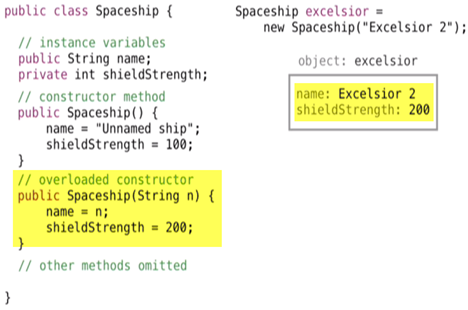


The constructor is called when an object of a class is created. Another important point to note while overloading a constructor is: When we dont implement any constructor, the java compiler inserts the default constructor. Let us understand this by the below example. A constructor in Java is a special method that is used to initialize objects. When an overloaded method is called, JVM determines which method to call by checking the type and number of the parameters. When one class has the same method names but they differ by parameter declaration then methods are called overloaded and this mechanism is called method overloading. The constructor overloading can be defined as the concept of having more than one constructor with different.

Rules For Constructors in Java The name of the constructor should be the same as that of the class name. It is used to assign values to the data members of the same class.

Right now I am passing hard coded arguments to the constructors. In Java, constructor overloading is a technique that allows multiple constructors with different parameter lists to be defined in a class. A constructor is called when an object or an instance is created. Constructor, like an ordinary method, can also be overloaded.


 0 kommentar(er)
0 kommentar(er)
